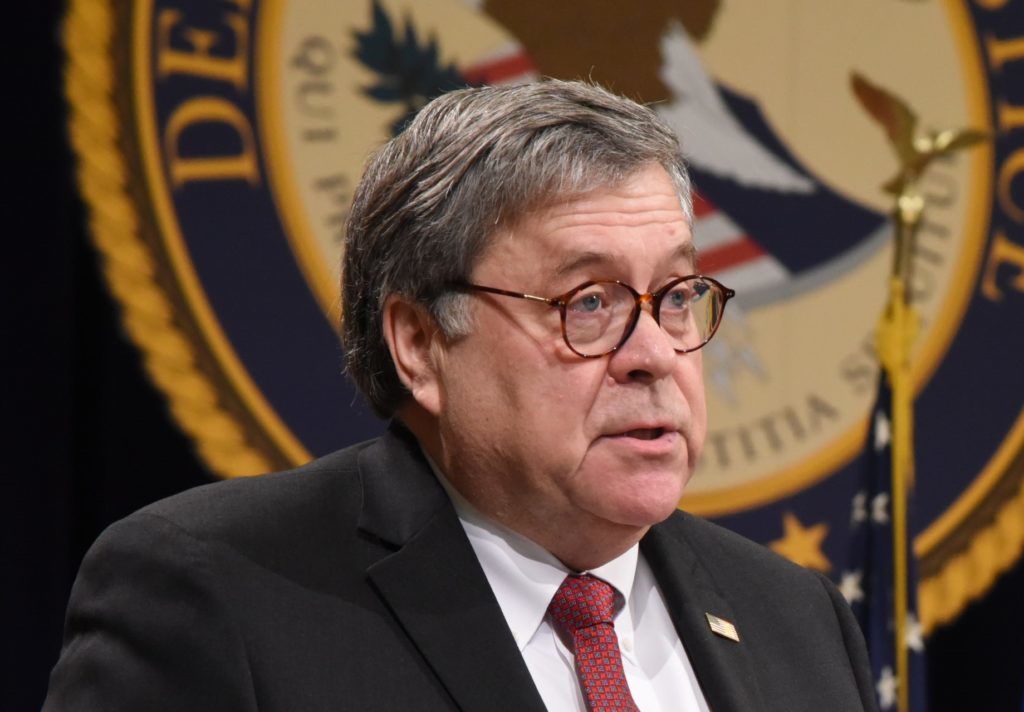Bill Barr is spiraling out of control

One day, when the smoke has cleared and the dust has settled, lawmakers will have to tackle the difficult task of trying to patch up the weak spots and the gaping holes that have become apparent in the fabric of the American system of government. It will be a truly herculean task, and the burden will probably fall mostly on the shoulders of Democratic members of Congress, since the Republicans apparently checked their ethics and principles at the door at some point in 2016.
One of the many things that lawmakers will need to address as they wade through the debris of what was assumed to be a perfect system of checks and balances will be the role of the Department of Justice’s Office of Legal Counsel. The OLC is a small office that rarely garners any public attention, but it holds extraordinary power. By law, the function of the Office of Legal Counsel is to help the Attorney General provide legal advice to the president and federal agencies. In its current form, the OLC operates like a black box. Important legal questions are submitted to the office for deliberation and the OLC then issues an opinion – often in the form of a memo – which is binding on the executive branch. Yet the process of decision making and the rationales underlying the final opinion can be kept secret from everyone, except high-ranking administration officials.
We have witnessed the great and lasting influence exercised by the Office of Legal Counsel in the context of the Mueller investigation when the Special Counsel declined to make a prosecutorial judgment because of an OLC memo stating that a sitting president cannot be indicted. Mueller followed an old OLC directive – not a law – which was the result of deliberations on whether or not a sitting president could be criminally tried without the proceedings interfering with his official duties in a way that might be harmful to the country.
Under Attorney General Bill Barr and Assistant Attorney General Steven Engel, who is heading the OLC, the office – which is accountable to no one in particular – has played a pivotal role in shielding Donald Trump from congressional oversight. Among other things, the Office of Legal Counsel has declared that Congress may not obtain Trump’s tax returns and has asserted that the president’s counsel and senior advisers have immunity from congressional investigation.
In recent days, the current DOJ’s Office of Legal Counsel has flexed its muscle again, inserting itself into the processing of the Ukraine whistleblower complaint by simply asserting that – contrary to ICIG Michael Atkinson’s judgment – the complaint was not urgent or credible and should therefore not be passed on to Congress. Former Director of National Intelligence James Clapper, who handled whistleblower complaints in the aftermath of Snowden, told CNN’s Anderson Cooper that he wasn’t aware he had had the power to withhold a whistleblower complaint from Congress, thus pointing out the unprecedented nature of what Acting-DNI Joseph Maguire did under the OLC’s directive, which is in clear opposition to the Intelligence Community Whistleblower Protection Act (ICWPA).
It is quite ironic that the Trump regime, which regularly and loudly denounces the devious workings of an imagined “Deep State”, has managed to create for itself such a powerful tool that it resembles the notorious Court of Star Chamber of King Charles I and operates outside the provisions made by the American Constitution.

